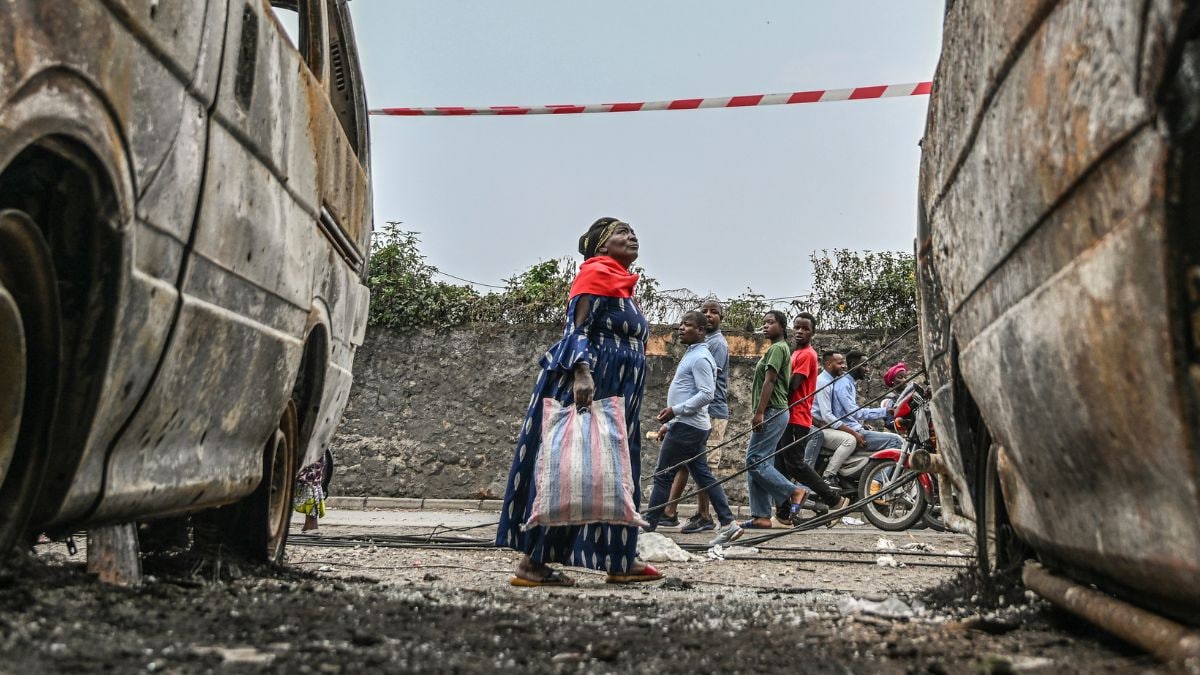
As the M23 seeks to advance after capturing the strategic city of Goma this week, UN High Commissioner for Human Rights Volker Turk “calls for an end to the violence and for all parties to uphold their obligations under international human rights law”. Rape has been widely documented as a weapon of war in eastern Congo for decades, fuelling a long-running sexual violence crisis in the region.
read more
Rwanda-backed M23 rebel group are expanding their control in eastern Congo after capturing the city of Goma, the UN said Friday. The rights body also expressed concerns over a sharp rise in human rights violations, including summary executions, the bombing of displacement camps and reports of gang rape and other sexual violence.
The rebel group remains the most formidable among the more than 100 armed factions vying for dominance in Congo’s mineral-rich east, an area abundant in resources essential to global technology.
According to UN experts, the group is supported by approximately 4,000 Rwandan troops, a significantly larger force than in 2012 when they first took Goma in a conflict rooted in ethnic tensions.
Atrocities surge in Congo: 12 executed, 52 women raped
The UN rights office (OHCHR) has documented summary executions of at least 12 people by the M23 between Jan. 26 and 28 as well as new cases of sexual violence by the Congolese armed forces and members of the pro-government Wazalendo alliance of armed groups, the organisation said in a statement.
“We have also documented summary executions of at least 12 people by M23″ from Jan. 26-28, Laurence said, adding that the group has also occupied schools and hospitals in the province and are subjecting civilians to forced conscription and forced labor.
Congolese forces have also been accused of sexual violence as fighting rages on in the region, Laurence said.
“We are verifying reports that 52 women were raped by Congolese troops in South Kivu, including alleged reports of gang rape,” he said.
Congo forces repel rebel attack, mass mobilisation begins
An attack by the rebels in Kalehe territory, about 140 kilometers (about 85 miles) from the South Kivu provincial capital, on Thursday was repelled by security forces, said Lt. Gen. Pacifique Masunzu, who commands a key military defense zone in South Kivu.
Congolese military bases in Bukavu were being emptied on Thursday to reinforce those along the way to the provincial capital, residents have told The Associated Press.
Hundreds of young people were on Friday registering as volunteers to join military training in the provincial capital, according to Gabriel Kasanji, a local administrative officer. This follows Congolese President Félix Tshisekedi’s call on Thursday for a mass military mobilization.
The central African nation’s military has been weakened after it lost hundreds of personnel and foreign mercenaries who surrendered to the rebels after the fall of Goma.
As he took office on Friday as the new governor of North Kivu, which includes Goma, Maj. Gen. Somo Kakule Evariste vowed to “move as soon as possible” to Goma to restore government control.
“This is not the time for speeches,” the general said. “The flame of resistance will never be extinguished.”
Goma’s residents face water, electricity shortages
As much of Goma remained without water and electricity supplies, residents trekked for hours to fetch water from Lake Kivu.
“We want the war to end so that we can resume normal life. Coming here every day, we will not make it,” said Badeja Matanda, a Goma resident.
M23 has tried to assert their control over the city, saying on Thursday that they were working to restore electricity and water supplies cut in the city of about 2 million people as the fighting raged on.
“We are going to struggle until we restore democracy,” said Corneille Nangaa, one of the political leaders of M23. “From a failed state to a modern state.”
With inputs from agencies


